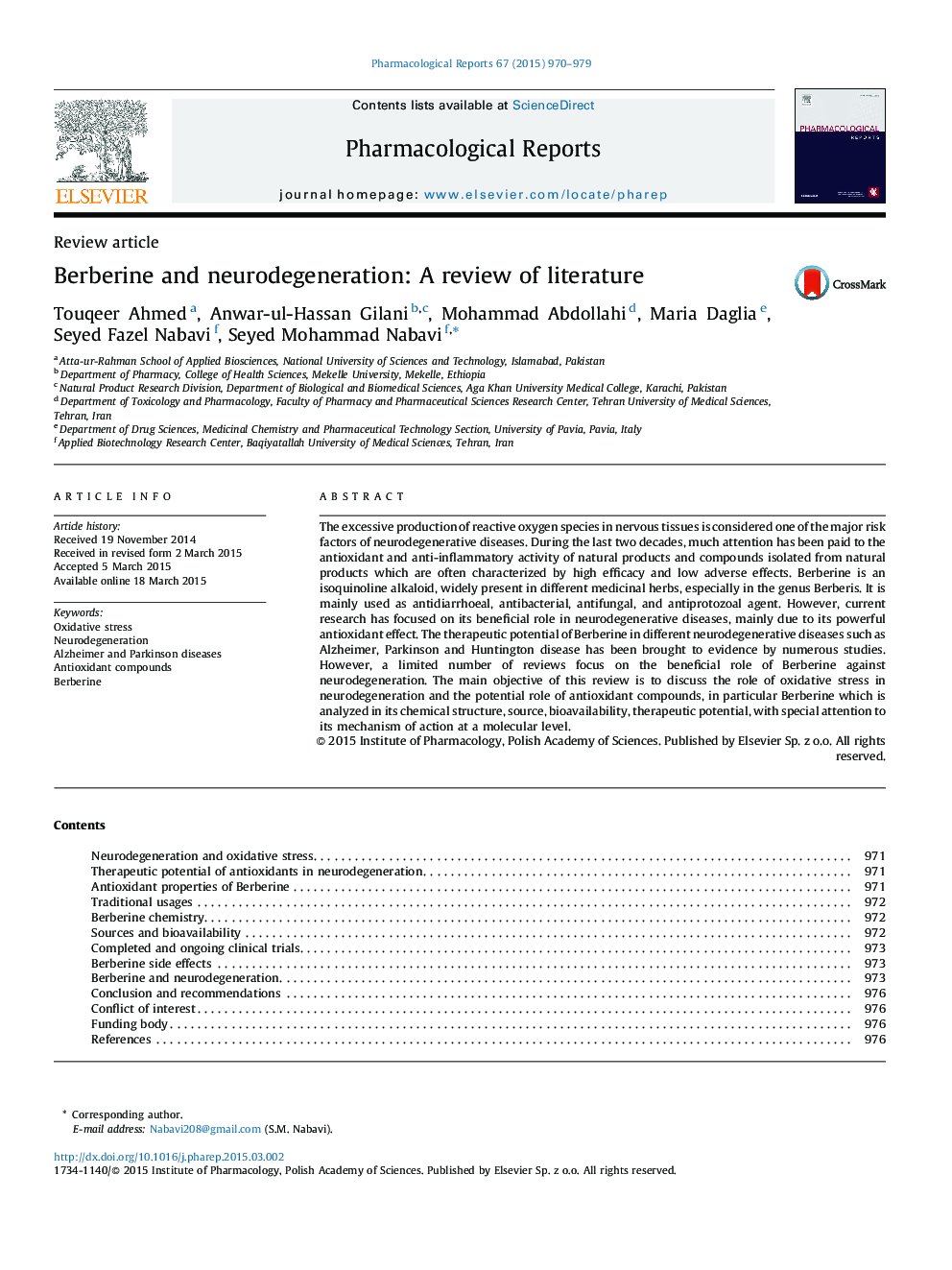| Article ID | Journal | Published Year | Pages | File Type |
|---|---|---|---|---|
| 2011035 | Pharmacological Reports | 2015 | 10 Pages |
Abstract
The excessive production of reactive oxygen species in nervous tissues is considered one of the major risk factors of neurodegenerative diseases. During the last two decades, much attention has been paid to the antioxidant and anti-inflammatory activity of natural products and compounds isolated from natural products which are often characterized by high efficacy and low adverse effects. Berberine is an isoquinoline alkaloid, widely present in different medicinal herbs, especially in the genus Berberis. It is mainly used as antidiarrhoeal, antibacterial, antifungal, and antiprotozoal agent. However, current research has focused on its beneficial role in neurodegenerative diseases, mainly due to its powerful antioxidant effect. The therapeutic potential of Berberine in different neurodegenerative diseases such as Alzheimer, Parkinson and Huntington disease has been brought to evidence by numerous studies. However, a limited number of reviews focus on the beneficial role of Berberine against neurodegeneration. The main objective of this review is to discuss the role of oxidative stress in neurodegeneration and the potential role of antioxidant compounds, in particular Berberine which is analyzed in its chemical structure, source, bioavailability, therapeutic potential, with special attention to its mechanism of action at a molecular level.
Related Topics
Life Sciences
Biochemistry, Genetics and Molecular Biology
Biochemistry
Authors
Touqeer Ahmed, Anwar-ul-Hassan Gilani, Mohammad Abdollahi, Maria Daglia, Seyed Fazel Nabavi, Seyed Mohammad Nabavi,
